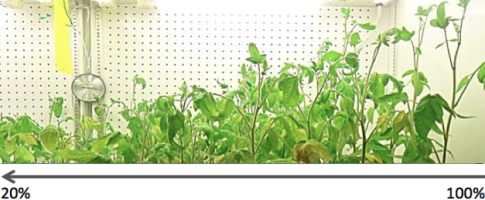Plant priming and BABA

Plants that have been exposed to stressful situations can “remember” these events. As a consequence, they are able to defend themselves faster and better upon renewed exposure to any stress - this phenomenon is called priming. We are interested in unravelling the changes that occur in a plant during the priming phase in order to optimize it for a better protection of plants against pathogenic microbes and abiotic stresses such as high salinity or drought. We study and characterize the metabolites formed during the priming phase and investigate their role in restricting pathogen growth as well as in triggering the defensive phase of the plant.
Beta-aminobutyric acid (BABA) as a plant-produced priming agent: Biosynthesis, regulation and perception
β-amino acids are rarely found in plants and up to now, β-aminobutyric acid (BABA) was considered as xenobiotic substance. However, the latest results obtained by our team at the Molecular and Cell Biology Lab, in collaboration with Reinhard Neier’s group at the Institute of Chemistry and Gaétan Glauser at the NPAC, provide clear evidence that plants do synthesize BABA and its accumulation increases upon exposure to biotic and abiotic stress. This exciting result upgrades BABA to the status of a potential plant priming hormone and opens a large array of questions. Plants treated with BABA develop an enhanced defensive capacity against a large variety of stresses. Expression of such BABA-induced resistance (BABA-IR) coincides with a faster and stronger defence response following pathogen attack or abiotic stress, a phenomenon that has been termed priming. BABA-IR is based on priming of distinct defence signalling mechanisms involving several plant hormone defence pathways.


